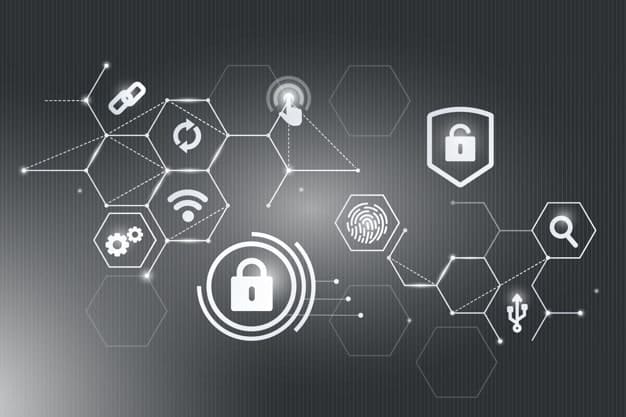Web security is crucial for every organization. Besides making the organization infrastructurally and operationally secure and robust, it generates more trust in customers who deal with such organizations. The need for web security differs from organization to organization, and a lot depends upon the size of the organization, the service that it provides, and its end-user. The vision of the organization and how agile it is to adopt web security also plays a vital role.
Web security comes in many forms, from endpoint security and data security to perimeter and security of the data in transit. Each security is significant for an organization, and a lot goes behind deciding the IT infrastructure, which evolves with time. Usually, a team of experts and a service provider together give customized solutions to companies to manage their web security.
Although every organization requires advanced web security solutions, there are a few organizations which are more vulnerable to cyber-attacks and their need for web security is higher than others. They have information that entices hackers which they use for their benefits like the PII or Personally Identifiable Information.
Let us understand five industries that can’t survive without advanced web security:
 BFSI
BFSI
Web security is instrumental for one of the biggest sectors in India; the BFSI. It includes banks and other financial institutions and has many stakeholders, like lenders, investors, internal employees, and customers. There is a repository of sensitive customer information with these organizations, which if leaked, may seriously hamper the image of the financial institution on the one hand and may result in severe monetary losses for the customer.
The urge to hack information is high, and the hackers use the hacked information for filing tax returns, paying bills, and stealing money which is detrimental to the interest of both the banks and the customers. But when the banks and FIs adopt advance web security methods, it makes them robust, and chances of hacking or malware attack become negligible.
Healthcare
It is one industry which is always the main target of hackers because of the two primary reasons. First is they can gather a massive amount of PII or the Personally Identifiable Information of the patients and may alter it and use it for their interest. The second primary reason is if there is a hacking or malware attack, it could result in the whole system, like the HMS, getting disrupted, causing severe impact on the working of the hospital. The healthcare industry suffers massive losses in the event of any third-party attack, which may even be life-threatening.
Healthcare sector engulfs multiple stakeholders, patients, doctors, supporting staff, pathology labs and insurance companies, all fall under it and small negligence by a hospital may cause losses to everyone who is a part of it. Insurance companies too suffer massive losses on account of data leak and may get fraudulent claims that result in a financial loss to the service provider.
 Ecommerce
Ecommerce
The world of e-commerce is burgeoning with even a small seller bringing his products to be sold online. While there is a vast market of online buyers and opportunity for business is in galore, but a small dent in web security can lead to serious losses. The sellers must be very cautious while creating the IT infrastructure of its online store and should not leave any point of concern, unaddressed. It is always advised to online sellers to avail services of reliable and expert IT professionals who will make the whole system attack-proof.
Be it a small e-commerce business or a large one, web security is mandatory for everyone. It will not only make the entire system more secure, but it will create more customer trust and eventually, more business for the seller.
General Business
Every business must create an online presence to reach a wider target market through a website or social media accounts. There is loads of information on the website, and social media handles about the business, its customers, and its unique selling proposition, which is useful for competitors. If attacked by malware, there can be a massive loss of sensitive and critical data besides a loss of reputation and disruption of service for a longer time. Since customers usually make payment through credit cards, a hacking attack may leak their credit card information and results in a colossal loss of money.
The general business includes multiple businesses, like forex trading, manufacturing, retail, pharma, etc. Each business has valuable information about customers which the customers provide with utmost faith. It becomes the responsibility of the business owner to keep the information intact and offer trustworthy services to its customers.
 Government Agencies
Government Agencies
Government agencies and PSUs have customer information, which becomes the target of hackers. The data is primarily of national interest and if hacked, may pose serious threats to the national security as well. Web security becomes essential for Government Agencies given to the fact that most of the Government transactions are now carried out online like payment of income tax, payment of property or water tax, etc. A malware attack on such websites can also be a planned activity of cross-border enemies who want to gather information about the country and use it to initiate attacks or wars.
Web security has different meanings for different industries, but they all have a common objective, and that is to protect customer data going into the wrong hands. Any effort done to make the web security robust is worth the investment and gives a lot of peace of mind to the companies.
To save the valuable personal information of the customers and other unfortunate events that may happen; as a result breach of web security, companies can adopt advance web security solutions like getting an SSL certificate, install a web application firewall, encrypt data at rest and backup regularly. Other web security initiatives include locking the wi-fi network and installing security applications.
Advanced web security is the need of the hour, and the earlier the organizations adopt the method, the better will be the results.
Data Breach and Its Impact
The global average cost of a data breach is whooping $3.62 million, as per IBM’s 2017 Cost of Data Breach Study. It is 10% down as compared to the previous year. But data breach not only results in monetary loss to the organization, but it is also the loss of trust of its customers and other stakeholders and a dent on its reputation. Post-breach, an organization has to spend money informing his customers about the breach that occurred and how they can protect their information or money. The organization also has to pay the compliance and legal fees besides adding extra security cover to the current data, which requires enhanced web security. One of the severe other effects of a data breach are the theft of proprietary information, increased insurance premiums, disrupted operations, loss of contacts, and loss of talent.
How Organizations Can Save Themselves from a Data Breach?
There are a few strategies, which, if adopted, protect the organization from data breach and add an extra cover on its web security, 24/7.
Some of the best strategies to protect organizations are:
Regular Backup
When you back up your website data regularly, there is hardly any loss of data in the event of a hacking or malware attack. You always have the backup data with you in place to help you recover the relevant information, and it will give you a lot of peace of mind when you backup regularly. The key is to back up to multiple locations like a hard drive, cloud server.
Update Frequently
Develop the habit of updating the software and operating system as soon as you get a notification. Download the latest version of your software and protect your data from getting lost.
Install a Web Application Firewall
WAF is a cloud-based firewall that filters the website traffic for possible threats like SQL injection attack and comment spammers. WAF is an advanced web security solution which helps keep malicious code from reaching your website and make an alteration.
SSL Certificate
It is a way to protect your data that works on encryption technology to keep data safe when it travels between your website and customer devices.
Encrypt Data at Rest
A data stored in a hard drive or PC is referred to as data at rest. It is tough to access such data, and hence, it is advised to keep most of your data in encrypted form in these devices.
Keep the Wi-Fi Networks Locked
It is necessary to keep your wi-fi networks protected. It is advised to keep your SSID broadcasting function disabled so that it will hide the network name.
Frequent Password Updates
It is one of the most trusted and commonly used security methods. It protects from data breach and loss of data.
Conclusion
Being wary of what is happening around is crucial when it comes to web security. Keep an eye on the activities of your competitors and be vigilant about any malicious activity that you found on any of your online channels. Report immediately to cyber cell and keep your customers informed to save them from any possible danger. Keep yourself updated of all the advanced web security solutions and experience peace of mind.







